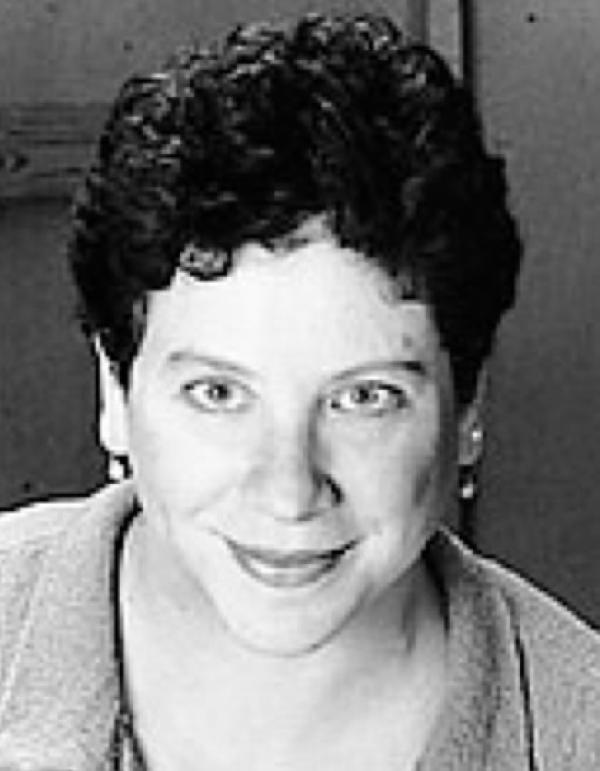Hester Kaplan

Photo by Constance Brown
Bio
Hester Kaplan grew up in Cambridge, and is the daughter of two writers. After graduating from Barnard College, she worked in book and magazine publishing. Her collection of stories, The Edge of Marriage, won the Flannery O'Connor Award for Short Fiction. She is also the author of Kinship Theory, a novel.
Her short fiction has appeared in many publications including Ploughshares, Agni, and Story. Her work has been included in anthologies as well as The Best American Short Stories series. Her most recent non-fiction essay, "The Private Life of Skin", appeared in Southwest Review. It won the McGinnis-Ritchie prize and was named a notable essay by The Best American Essays series.
She has received a Rhode Island State Council on the Arts Fellowship, and a Writer-in-Residence Award from the YMCA National Writer's Voice. She has taught writing at Rhode Island School of Design and is on the faculty of Lesley University where she teaches in the MFA Program in Creative Writing.
She is currently at work on a new novel, The Tell.
Author's Statement
I made my husband answer the phone, not because I was ever expecting that the call might be from the NEA, but because I was working. It was the kind of work I think all writers are familiar with-that tinkering in dim desk light that one does when confidence has mysteriously disappeared. It was the kind of tinkering I do when I'm hoping that the right word or the right sentence will answer all my misgivings.
To say that the call telling me I'd won a fellowship from the NEA came at precisely the right minute would be absolutely true. To say, too, that this award came at the right time in my life as a writer would be true as well. I'm not a fast writer, but I've been working at it for a long time. For me, the fellowship is an enormous acknowledgement of the work, and its gift of time and support will allow me to finish my novel, The Tell. I am honored and truly grateful to the NEA for this fellowship and for the essential work it does to support the arts.
From the novel-in-progress The Tell
One of the things he had brought with him when he moved into the house - what could the place possibly need? - was a beat-up, fake wood grained television he'd dragged around with him from apartments in New York to Providence, to this room. The antenna had long ago been snapped off, leaving only a sharp, silver scab. Most of the time, the television sat cold, cable-less, unwatched, its blank screen drawing dust and looking uncomfortable in a room with a much higher class of objects. He had a kind of nostalgic allegiance to the thing. If he tried, he could still remember why he and the television had liked and wanted one another, but the urgency had passed, as mysterious and hazy as love itself.
He leaned over his desk to get a different view of Wilton's house, now lit up like an ocean liner. He saw no movement behind the curtainless windows, and sat back again. When Mira's insomnia had kicked in, he'd thought the television might soothe and settle her wakeful hours (it had always worked for him, hadn't it?) and so one afternoon he'd carried it upstairs, the smell of dusty electronics spiraling through his nostrils. He put it at the foot of their bed on a small table he'd found in one of the back rooms. Mira had eyed it suspiciously, and then looked not at herself in the mirror over the bureau, but at his reflection as he keeled to plug the thing in. Often at night, her worry was about Brindle, not enough money to do what she wanted to get done, or about the hundred-year-old building that housed the place, or about the people - the risky kids, trembling old people, busted-up recovering addicts - she might end up letting down. All real things to worry about. Other times, her worries were more fantastical - flames shooting with painterly exuberance from Brindle's windows, and epic flood that would breach the hurricane barrier and float her school out to Narragansett Bay. This amorphous prediction of disaster seemed closer to the truth of her restiveness, because what was fear of ruin really but loneliness? Of dying alone. And if she was lonely, didn't that also have to do with him?
His knees ground into the floorboards. He looked at her in the mirror. "It will help you get back to sleep."
She ran her tongue over her top teeth. Her reluctance to be helped or guided was familiar. She did not always like herself, but she was sure of who she was. He could tell she was considering what to say to him. She knew that her sleeplessness was not the only devil. When she was awake, he'd reluctantly told her once, he couldn't help but rouse too, eventually. That was marriage, he'd joked. It was in those formless minutes before he bludgeoned himself back to sleep, that he replayed a night long before he'd met Mira, when he'd almost been killed, when the woman he'd been sitting with, a lover he didn't love, had been shot dead. It was that instant when he'd made a decision not to do anything - was it wrong? Was it right? - that stuttered and stuttered. It was terrible to find that sweet-sour basaltic odor of death in his nostrils still, and in those moments, he could only press his face against Mira's skin to block it out.

